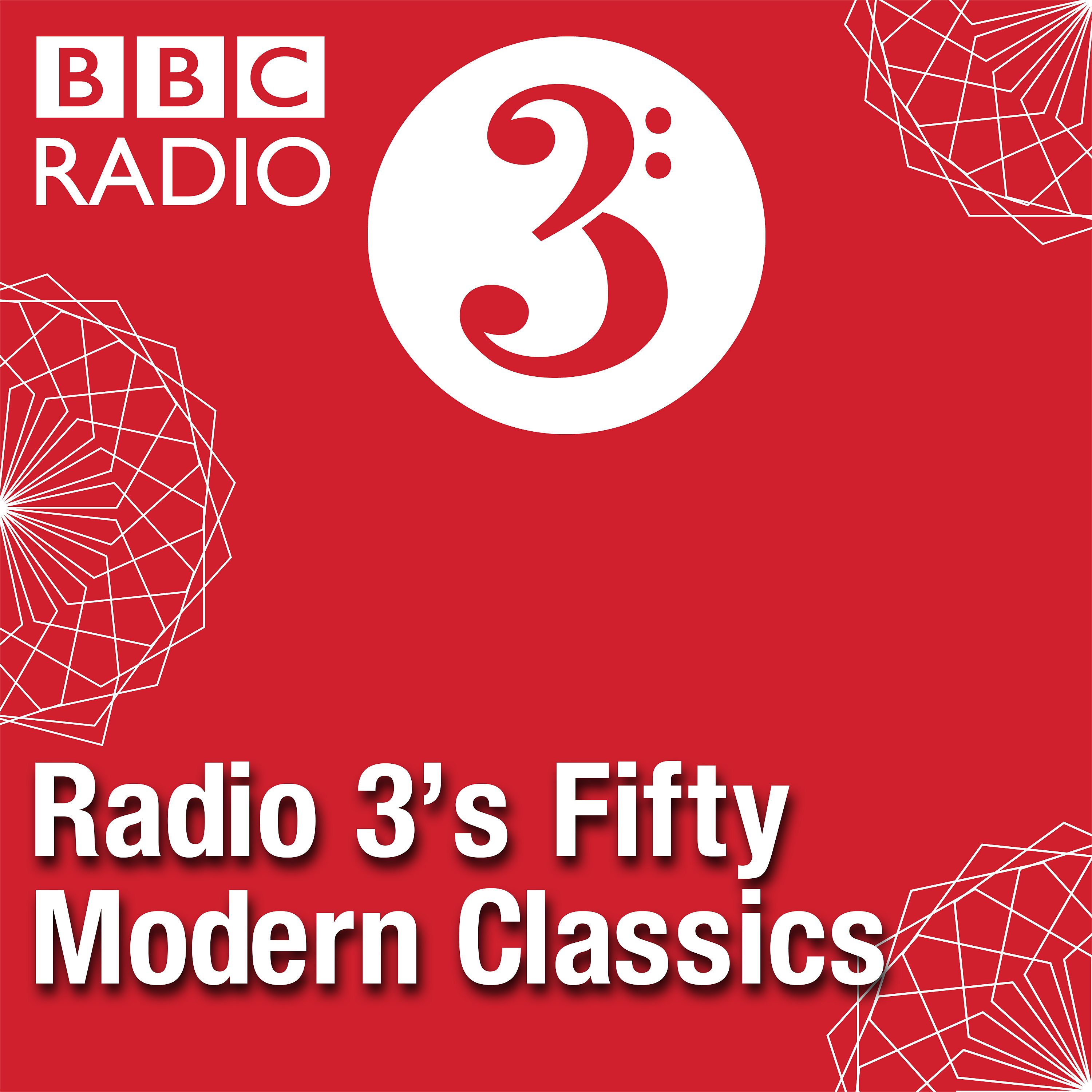

Radio 3's Fifty Modern Classics
BBC Radio 3
Artists, musicians and composers introduce fifty key pieces of classical music composed between 1950 and 2000. As featured in the BBC Radio 3 programme, Hear & Now.
Episodes
Mentioned books

Nov 27, 2011 • 12min
Howard Skempton's Lento
Artist Tom Phillips on Howard Skempton's Lento for orchestra, a completely tonal piece that he admires for achieving "content with simplicity"; Gillian Moore puts it in the context of the English experimentalist tradition; and the composer himself explains in detail the process by which he developed his initial sketches into the finished work.

Nov 13, 2011 • 11min
Edgard Varese's Poeme electronique
Composer and former Battles frontman Tyondai Braxton nominates Poeme electronique by Edgard Varese, whose soundworld has been a continuing influence on his own work; while Gillian Moore tells the story of Varese's long struggle to create a futuristic music that he finally achieved in this piece, composed for an array of hundreds of loudspeakers inside the Le Corbusier-designed Philips Pavilion at the 1958 Brussels World Fair.

Nov 6, 2011 • 14min
John Cage's 4'33"
Artist Tacita Dean on John Cage's legendary 4'33" and how it provided an inspiration for Stillness, her 2007 project with choreographer Merce Cunningham. Conductor and Cage collaborator Richard Bernas underlines some important but often neglected aspects of the score and draws a parallel with the visual arts scene of 1950s New York. And we hear the voice of the composer himself from a 1970s BBC interview with critic Frank Kermode.

Oct 29, 2011 • 12min
Cornelius Cardew's The Great Learning
Pianist and Scratch Orchestra member John Tilbury speaks up for The Great Learning by the radical British composer and political activist Cornelius Cardew. Paul Griffiths explains its place in Cardew's musical and political thinking, and the composer suggests musicians abandon ‘individual choice’ and join together to orchestrate social change.

Oct 22, 2011 • 11min
Iannis Xenakis's Nomos Alpha
Mathematician Marcus du Sautoy explains how Iannis Xenakis uses the symmetry of a cube to determine musical parameters in Nomos Alpha for solo cello; Paul Griffiths highlights the composer's innovations in the fields of sound and instrumental writing; and we hear an archive interview in which Xenakis credits his teacher Olivier Messiaen in helping him to find his own compositional voice.

Oct 15, 2011 • 11min
Louis Andriessen's De Staat
Dutch composer Michel van der Aa salutes compatriot Louis Andriessen's 1976 work for amplified voices and large ensemble, De Staat. Gillian Moore highlights the modern scoring of the work, informed as much by rock music as Stravinsky, while the composer himself reveals how a recording of a Javanese women's choir fed directly into the soundworld of this powerful setting of a text from Plato's Republic.

Oct 8, 2011 • 11min
Pierre Boulez's Le Marteau sans Maitre
Sir Harrison Birtwistle singles out Pierre Boulez's 1950s cycle for voice and mixed ensemble, and describes encountering the score for the first time, while Paul Griffiths explains how the composer employed total serialism and a radical new approach to instrumentation in illuminating the fleeting, surrealist poetry of Rene Char.

Oct 1, 2011 • 11min
Elliott Carter's String Quartet No.3
Novelist and poet Mark Haddon explains what it is about Elliott Carter's String Quartet No.3 that reminds him of an argumentative family meal; the composer himself describes with relish his 'eclipses' of sound; and Paul Griffiths explains Carter's use of metric modulation.

Sep 24, 2011 • 10min
Gyorgy Ligeti's Atmospheres
Film-maker Sophie Fiennes explains why she chose György Ligeti's Atmosphères for the soundtrack of a film about artist Anselm Kiefer, and Paul Griffiths explains its significance in Ligeti's development of cloud-like musical structures. And we also hear from the composer himself.

Sep 17, 2011 • 10min
Steve Reich's Different Trains
Matthew Herbert, songwriter and electronic music producer, reflects on the continuing relevance of Steve Reich's seminal 1988 piece for string quartet and tape, where recorded speech leads the melodic lines to create a remarkable and evocative atmosphere. The feature includes commentary from the South Bank's Head of Contemporary Culture Gillian Moore, and we also hear the voice of the composer himself.


